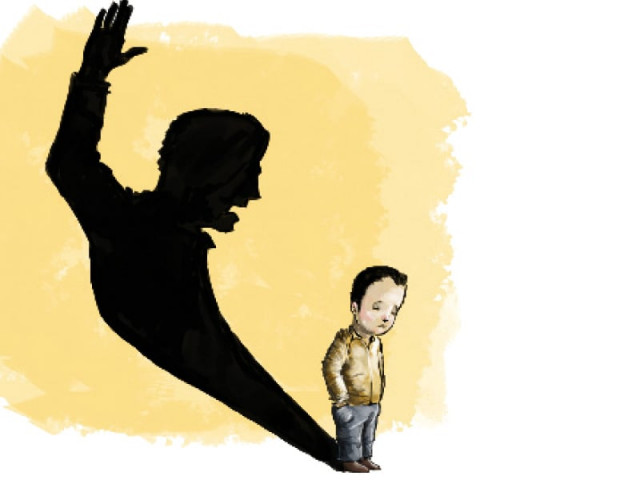Child protection: Runaways apprehensive about reunions
Child rights activists believe that the children and their families need counselling.

"Repatriation is an exercise in futility if the children aren’t counselled and their psychological issues aren’t resolved," Sarah Asad of Pehchan.
“I ran away because my father used to beat me. I miss my parents and am happy that I’m going home, but I’m also scared... I don’t know if my father will be angry and hit me again... I’ll find out once I get home,” Adil, 12, one of the 50 missing children sent back to their families by Edhi Foundation last month, told The Express Tribune.
He spoke about the conundrum he faced in preparing to go back to his home in Lahore after living at an Edhi home in Karachi for six years. He said that he ran away from his home in Heera Mandi to Karachi because he was beaten up at home.
Adil was part of a nation-wide repatriation effort by Edhi Foundation last month. As many 50 children travelled across the country in hopes of being reunited with their families.
Four of the eight children from Lahore claimed to have run away because they faced abuse at the hands of their parents.
Edhi spokesperson Anwar Kazmi believes that there is more to the problem than the children claim. “Many of them have been petty thieves or used drugs,” he said, “Many children just run away out of habit.” Once on the streets, the children become immune to some of the fears and like the independence. “Often parents have no choice but to use corporal punishment to discipline them,” he said.

Kazmi was among the Edhi officials who oversaw the repatriation operation. “We counsel the children,” he said, “But not their families.” There are also no arrangements to follow up on the repatriation. “In several cases we have found out that the children develop bad habits. They run away from their homes when they are disciplined and claim that they were being physically abused,” Kazmi said.
However, many child protection activists believe that navigating through the complexities of social, legal, emotional and psychological issues of children is difficult.
“Repatriation of children cannot be a courier service,” said Sarah Asad, a consultant on children’s rights, “A child is not a parcel you deliver to his house and think the job is done.”
Asad, also a former executive director of Pehchaan (NGO working for child protection), said that one can find several runaway children in areas like Badami Bagh, Data Darbar and in the vicinity of the railway station. “Many of them have very basic needs,” she said, “It could be in hopes of free food, green parks or even independence.”
She said that once the NGO located the children, they went through a series of counselling sessions that could take up to a year. “Repatriation is an exercise in futility if the children aren’t counselled and their psychological issues aren’t resolved,” Asad said.
Many of these children run away because they feel neglected at home or are forced to work. That is where the problem lies...they think that if they are going to work, they could try their luck in bigger cities, she said. “Once these children, in search for ‘independence’, hit the streets, they are at risk of being sexually abused and exploited,” said Asad.
Iftikhar Mubarak, a child rights activist who has worked with the Society for the Protection of the Rights of the Child (SPARC) and SAHIL, said that the problem was twofold. “Children don’t run away just because their families are poor, many of them are physically abused,” he said.
“Many children run away because they witness violence in their homes,” he said. If the children and their families aren’t given proper counselling, there is a high chance of children running away after being repatriated, said Mubarak.
They could even take drastic steps after running away the second time, he said.
The second problem is the absence of accurate data. Without that, he says, it is hard to make the government appreciate the enormity of the situation. NGOs can do only so much, he says. “Long term sustainability of such interventions depends on the government’s help,” Mubarak said.
SPARC Child Labour Programme National Manager Rashid Aziz advocates the involvement of the Child Protection and Welfare Bureau in cases of repatriation of children.
He says that offences against children have been defined in the Punjab Destitute and Neglected Children Act (PDNCA) 2004. Such cases should be taken to child protection courts. “The law has established an authority to determine the best interest of children,” he said.
The PDNCA 2004, which deals with matters of ‘rescue, protective custody, care and rehabilitation of destitute and neglected children’ in the Punjab, lists as many as eight offences against children. These include unauthorised custody, cruelty, forcing child to beg and intoxicating children (with liquor or drugs). It also defines the terms ‘destitute’ and ‘neglected’ with respect to children.
However, the section dealing with offences of ‘cruelty to children’, parents and guardians prescribe no punishment, “where some punishment is administered to a child by the person having lawful control or custody of the child, for any good or sufficient reason”.
The Child Protection and Welfare Bureau was established under the PDNCA 2004, with the mandate of protecting and rehabilitating destitute and neglected children in the province.
Child protection officer and media liaison at the CPWB Zara Omer says that the bureau conducts ‘rescue’ operations twice a day, in which ‘neglected and destitute’ children are taken off the streets and into the bureau’s custody of.
The bureau was established in 2004, she said, “Several NGOs for child protection have been working on repatriation way before us.”These child protection NGOs have been given the mandate to conduct similar operations, provided that they follow operational and legal procedures as per the bureau rules.
“Once the bureau identifies the children’s families,” Omer said, “The child and his parents are both counselled.”
The bureau also has the authority to carry out follow up checks on children through child protection officers. It, however, lacks the resources to provide counselling and follow up checks on all children repatriated through other organisations.
“We can provide children with everything except homes, so when we unite them with their parents we ensure that there is a strong follow up and a monitoring mechanism,” said Omer.
Published in The Express Tribune, August 7th, 2013.



















COMMENTS
Comments are moderated and generally will be posted if they are on-topic and not abusive.
For more information, please see our Comments FAQ